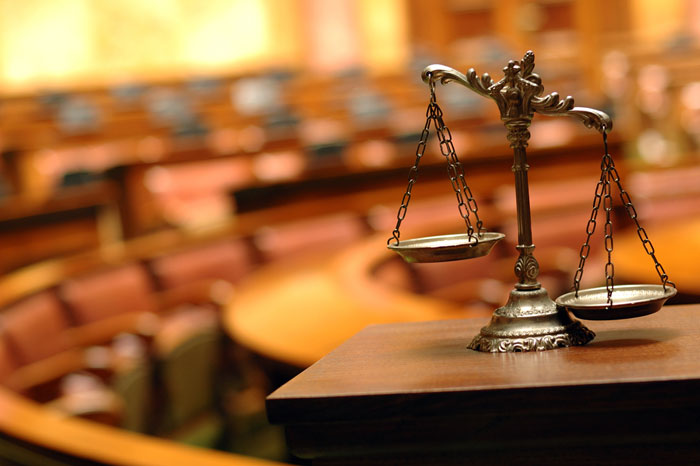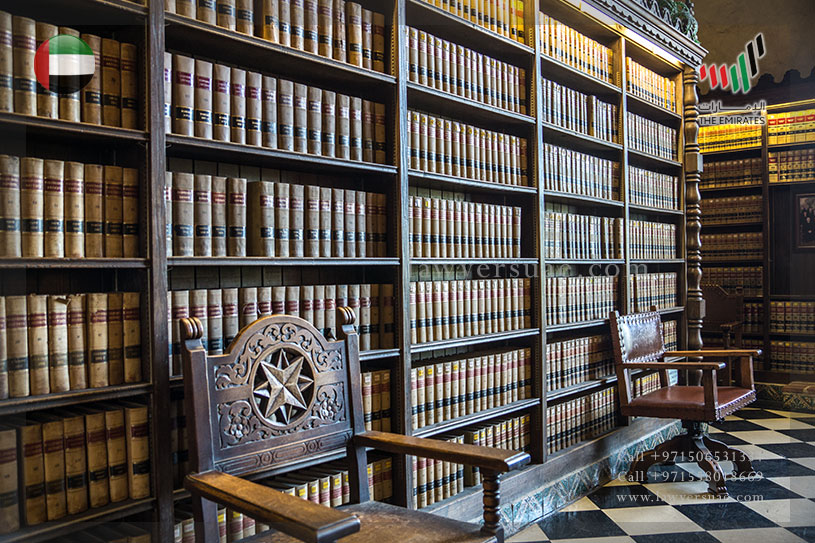Criminal law and civil law are two broad categories of law that have some key differences. This guide will explain what each area of law entails, how they differ, and why it’s important for the general public to understand them both.
What is Criminal Law?
Criminal law is the body of laws that deals with crimes and provides punishment for criminal offenses. Violations of criminal law are considered dangerous or harmful to society as a whole.
Some key things to know about criminal law:
- It is enforced by the government through law enforcement agencies like the police, courts, correctional systems and regulatory bodies.
- Violating a criminal law can result in fines, probation, community service or imprisonment.
- The prosecution must prove “beyond a reasonable doubt” that the defendant committed the crime. This high standard of proof exists to protect the rights of the accused.
- Types of crimes include theft, assault, drunk driving, domestic violence and murder. White-collar crimes like embezzlement and insider trading also fall under criminal law.
Parties in a Criminal Case
There are several key parties involved in a criminal case:
- Prosecution: The lawyer or team of lawyers representing the government. Often called district attorneys or state’s attorneys.
- Defendant: The person or entity facing the criminal charges, often referred to as the accused. Defendants have the right to an attorney and to claim innocence until proven guilty.
- Judge: The person who presides over the courtroom and ensures legal rules and processes are followed.
- Jury: In more serious criminal cases, a group of impartial citizens will hear the evidence and determine guilt or innocence.
Stages of a Criminal Case
A criminal case typically moves through the following stages:
- Arrest: Police take the suspected perpetrator into custody. They must have probable cause to make an arrest.
- Booking and Bail: Defendant has their charges set, gets “mirandized” and may have the option to post bail for release before their trial.
- Arraignment: The defendant is formally charged and enters their plea before a judge.
- Pretrial Motions: Attorneys may argue legal issues like challenging evidence or requesting a change of venue.
- Trial: Prosecution and defense present evidence and witnesses to either prove guilt or establish innocence.
- Sentencing: If found guilty, the judge determines punishment within statutory sentencing guidelines. This may involve fines, probation, restitution payment to victims, imprisonment or even the death penalty. Defendants can appeal.
What is Civil Law?
Whereas criminal law focuses on crimes against society, civil law deals with private disputes between individuals or organizations.
Here’s an overview:
- Covers non-criminal cases like disagreements over the meanings of contracts, personal injury disputes, or breaches of rental agreements.
- The standard of proof is lower than criminal law, based on “preponderance of evidence” rather than “beyond reasonable doubt.”
- Seeks to provide monetary damages or court orders rather than imprisonment, though fines can result.
- Examples include liability lawsuits, tenant disputes with landlords, child custody battles and patent infringement cases.
Parties in a Civil Case
The main parties in civil litigation are:
- Plaintiff: The person or entity who files the lawsuit. They claim damages were caused by the defendant.
- Defendant: The person or entity being sued, who must respond to the complaint. The defendant can settle or contest the allegations.
- Judge/Jury: Civil cases don’t involve criminal penalties, so there is no guaranteed right to a jury trial. However, both parties can request to make their case in front of a jury who will determine liability or award damages. Judges decide questions of applicable law.
Stages of a Civil Case
The civil litigation timeline generally follows these steps:
- Complaint Filed: The lawsuit formally begins when plaintiff files paperwork, including details about alleged harms.
- Discovery Process: The evidence collection phase which can involve depositions, interrogatories, document production and admission requests.
- Pretrial Motions: As with criminal pretrial motions, parties can request judgments or exclusions of evidence before the trial starts.
- Trial: Either side can request a bench trial (judge only) or jury trial. Case proceedings are less formal than criminal trials.
- Judgment: The judge or jury decides if the defendant is liable and awards damages to the plaintiff if appropriate.
- Appeal Process: The losing party can appeal the verdict to a higher court and request a new trial.
Comparing Features of Criminal and Civil Law
While criminal and civil laws occasionally intersect in areas like asset forfeiture proceedings, they serve distinct purposes and have key differences:
| Category | Criminal Law | Civil Law |
|---|---|---|
| Purpose | Protect society from dangerous behaviors Punish violations of public values | Resolve private disputes Provide monetary relief for damages |
| Parties Involved | Government prosecutors vs criminal defendant | Private plaintiff(s) vs defendant(s) |
| Burden of Proof | Beyond a reasonable doubt | Preponderance of evidence |
| Outcomes | Fines, probation, imprisonment | Monetary damages, court orders |
| Initiating Action | Police arrest suspect / State presses charges | Plaintiff files complaint |
| Standard of Fault | Act was intentional or extremely careless | Showing of negligence is generally sufficient |
While civil cases provide financial awards if the defendant is found liable, criminal cases punish societal wrongs with fines or imprisonment to deter future harms. Both play crucial yet distinct roles within the justice system.
Real World Examples
It helps to look at real world examples to see the divide between civil and criminal law:
- OJ Simpson faced criminal charges for murder and assault – violating public duties not to kill or harm. He was acquitted criminally but lost the civil liability lawsuit filed by victims’ families, ordering him to pay millions for wrongful deaths resulting from negligence.
- Martha Stewart engaged in insider trading – a criminal case brought by the SEC. She also faced a civil lawsuit from shareholders claiming losses from the improper information.
- Filing a civil personal injury lawsuit for damages against a drunk driver who caused physical injuries in a collision would be completely separate from any criminal charges law enforcement pressed against the driver.
Call us now for an urgent appointment at +971506531334 +971558018669
Why Understanding Civil and Criminal Law Matters
The average citizen may interact far more often with civil statutes around issues like contracts, wills, or insurance policies than criminal laws. However, knowing the basics of criminal justice and civil court processes promotes civic participation, life planning, and informed public discourse.
For those aspiring to work within the legal system, gaining thorough exposure to foundational civil and criminal law concepts in school prepares students to serve society and access justice through various roles like legal advocacy, real estate planning, government regulation, and corporate compliance.
Ultimately, the collective body of civil and criminal laws shapes an orderly society where individuals agree to rules ensuring security and equality. Familiarity with the structure empowers citizens to exercise their rights and responsibilities.
Key Takeaways:
- Criminal law deals with offenses against the public good that can result in imprisonment – enforced by the government against an accused defendant.
- Civil law manages private disputes focused on monetary remedies – initiated through complaints between plaintiffs and defendants.
- While they work differently, criminal and civil laws complement each other to maintain social harmony, safety and stability.
Frequently Asked Questions
What are some common examples of criminal law cases?
Some of the most commonly charged criminal offenses include assault, battery, burglary, theft, arson, shoplifting, embezzlement, tax evasion, insider trading, bribery, computer crimes, hate crimes, murder, manslaughter, rape and illegal drug possession or distribution.
What are potential outcomes for criminal convictions?
Common criminal penalties include probation, community service, rehabilitative counseling or enrollment in an education program, house arrest, jail time, mandatory mental health treatment, fines, asset forfeiture, and in severe cases imprisonment or the death penalty. Plea agreements provide an incentive for defendants to avoid trial convictions in exchange for lesser sentencing recommendations.
What is an example of how criminal and civil law intersect?
An example is when an individual or company engages in fraud, violating criminal laws around perjury, false statements, or accounting manipulation. Regulators can file criminal charges requesting convictions and penalties like prison time or corporate dissolution. At the same time, victims of the fraudulent behavior can pursue civil lawsuits to recoup financial losses in matters like securities or wire fraud. The civil remedies are distinct from the criminal punishment.
What happens in a civil court case?
In a civil lawsuit, the plaintiff files a complaint detailing how they were wronged, requesting the court award monetary damages or demand the defendant cease harmful actions. The defendant then responds to the complaint with their side of the story. Before trial, parties undergo discovery to collect relevant documents and testimony. At the bench or jury trial itself, both sides present evidence supporting their version of events to prove or disprove allegations of harm deserving compensation or court intervention.
What happens if someone loses a civil case?
Remedies in civil litigation often involve monetary damages – meaning if the defendant loses, they must pay the determined amount to the plaintiff for losses suffered from their actions or negligence. Settlements before trial similarly agree to payment amounts. Losing defendants with insufficient ability to pay may declare bankruptcy. In some civil cases like custody battles, corporate disputes or harassment complaints – the court can order non-monetary remedies like transfer of property rights, changes to corporate policies or restraining orders instead of large dollar amounts.
What is the difference between jail time and prison time?
Jail typically refers to local detention facilities run by a sheriff or police department to hold those awaiting trial or serving short sentences. Prisons are longer-term state or federal correctional facilities housing convicts with sentences over a year. Jails are locally administered and usually have fewer programs. While conditions vary, prisons generally have more space for inmate populations, vocational opportunities and recreational time relative to tightly-controlled jail environments.
Call us now for an urgent appointment at +971506531334 +971558018669


Dear sir /mam,
I am working since 11 years in Indian High school Dubai as a music teacher suddenly they issued a memo on 15th Feb accusing me of false allegations -in result of that I felt very humiliated and asked them to terminate me .I also complained to ministry abut the termination as they have terminated me on wrong grounds ,yesterday they have sent me my final dues which Is 1 month salary and gratuity which is beyond my understanding .
I am a sincere dedicated teacher so many years [28yrs] teaching in India and here never got bad name today they have questioned my teaching after 11 yrs feeling so bad .how come any one continue in any organization for such along time if she or he is not good please advice what shld I do ?
Thank You for contacting us.. we’ve replied to your email.
Regards,
Lawyers UAE
Dear Sir/Madam,
i am working in company for 7 years . after my resignation and completed my 1 month notice period. when i came back to settle my cancellation, the company informed me verbally that they filed a criminal case agaist me which is not true. and that happens during my vacation. they refused to show me the details of the criminal case and told me that they will hold my cancellation and they will escalate this to my new employer. can i also file a case against them for False accusation. please advise on what should i do?
I guess, you need to visit us for a consultation with your case no.